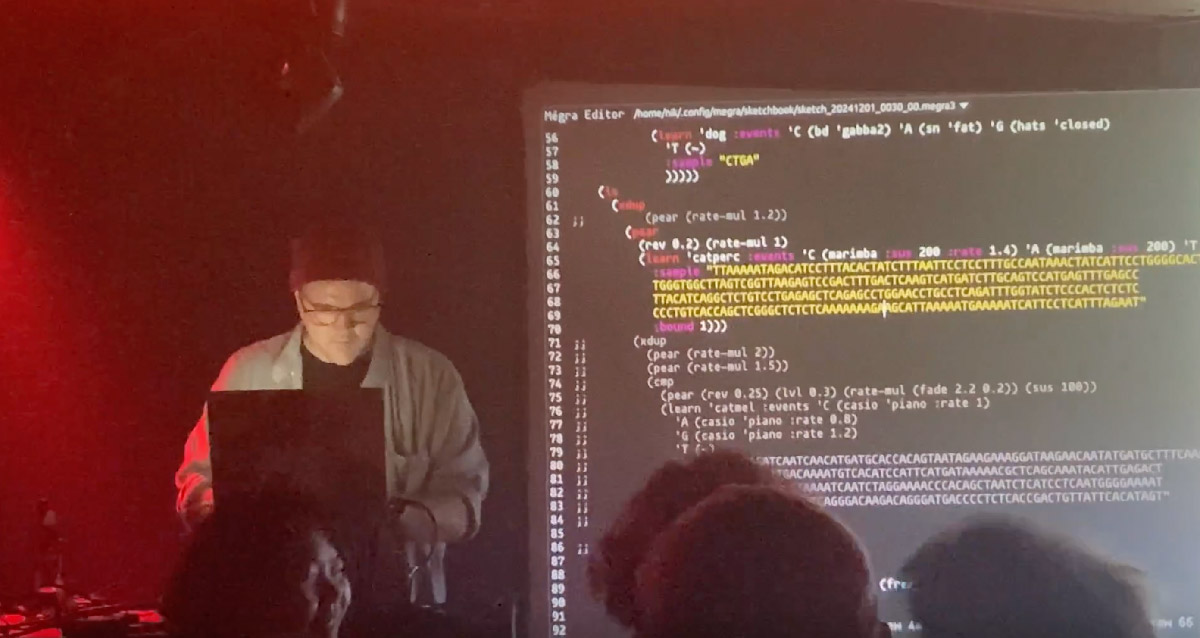CRISPRave
CRISPRave is a live-coded algorave by Niklas Reppel, where music is generated in real time from cat and dog genome sequences using the Mégra language. By editing gene data on stage, he shapes complexity and intensity, creating unorthodox grooves through live bio-algorithmic sound.
About the project

CRISPRave is a live-coded, small data algorave performance where all musical material is learned live on stage from genome sequences of a cat and a dog, juxtaposing the two to create unorthodox grooves.
It is created with the Mégra live coding language, a lisp-like, free and open-source live coding language that I’ve been developing over the last eight-or-so years. In its current implementation, it’s a standalone language implemented on top of the Rust audio universe.
Mégra is designed around Probabilistic Finite Automata (a formulation of variable-order Markov chains) as its core data structure, which allow for wide range of musical structures to be expressed and learned from sequential data, with a concise syntax.
Abstract
Rather than using the Markov chain learning algorithm to supplement a perfor-mance, in this performance it’s the center of attention. All models are learned,visualized and turned into sound live on stage, only with the hardware present on stage.
Editing the gene sequence is explored as a performative gesture to control the complexity of the resulting sound (hence the name). Both model parameters and input data are modified to control density and intensity of the performance.
CRISPRave is a live-coded, small data algorave performance where all musical material is learned live on stage from genome sequences of a cat and a dog, juxtaposing the two to create unorthodox grooves.
Rather than using a Markov chain learning algorithm to supplement a performance, it’s the center of attention. All models are learned, visualized and turned into sound live on stage.
Editing the gene sequence is explored as a gesture to control the complexity of the resulting sound (hence the name). Both model parameters and input data are modified to control density and intensity of the performance.
Exhibited at
About Niklas Reppel
Niklas Reppel (* 1983 in Witten, Germany) is (in no particular order) a pro-grammer, live coder, sound artist, composer, passionate Linux musician, and committed eclecticist. He has been based in Barcelona since 2017, where he found a home in the local TOPLAP node. He has performed as a live coder nationally and internationally, with his work revolving around developing his own live coding galaxy within the larger FLOSS music universe.

